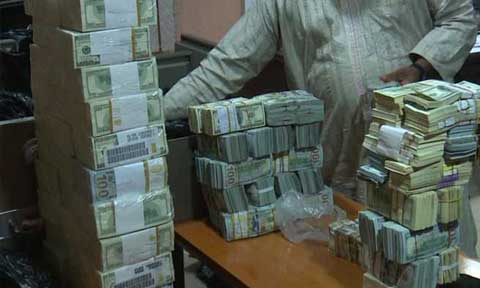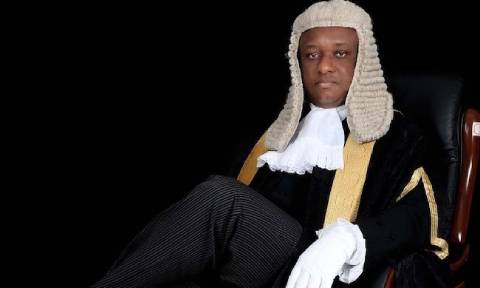A former Group Managing Director of the Nigerian National Petroleum Corporation, Andrew Yakubu, has dragged the Federal government to court over the $9.8million and £74,000 recovered by the Economic and Financial Crimes Commission, EFCC.
Recall that a federal high court, in Kano, had ordered the forfeiture of the sums to the federal government.
The ruling was sequel to an ex parte application the agency filed seeking an interim forfeiture of the monies to the government.
In her ruling, Zainab Abubakar, a justice, held that “the sum of $9,772,000 and £74,000 which are now in the custody of the applicant (EFCC) are in the interim forfeited to the federal government of Nigeria”.
In response, Yakubu instituted a suit at the Federal High Court, Kano requesting it to set aside the order of forfeiture granted to the Federal Government last week by the court.
In the suit filed by Yakubu’s counsel, Ahmed Raji (SAN), he argued that the court had no jurisdiction to grant the order.
He said the crime was committed in Abuja, which is outside the territorial jurisdiction of the court in Kano.
In the motion on notice with suit number FHC/ICN/CS/24/2017, Raji argued that by Section 45 of the Federal High Court Act, an offence shall be tried only by a court exercising jurisdiction in the area or place where the offence was committed.
“No aspect of the perceived offence in respect of which the Order of 13th February, 2017 was made, was committed within the Kano judicial division of this Honourable Court, he said.
“By Section 28 of the EFCC Act, only the commission, i.e. the EFCC has the vires to seek an Order for the interim forfeiture of property under the Act.
“The power of this Honourable Court to make interim forfeiture Order(s) pursuant to Sections 28 & 29 of the Economic and Financial Crimes Commission Act, 2004 (hereinafter “EFCC Act”) is applicable ONLY to alleged offences charged under the EFCC Act and not to offences cognizable under any other law.
“The ex-parte Order of this Honourable Court dated 13th February, 2017, was made in respect of alleged offences under the Independent Corrupt Practices and other Related Offences Commission Act (hereinafter “ICPC Act”) and not the EFCC Act as prescribed by Section 28 and 29 thereof.
“The conditions precedent to the grant of an interim forfeiture Order under Sections 28 & 29 of the EFCC Act were not complied with by the Applicant before the Order was made.
“In the instant case, no charge was brought against the Respondent/Applicant before the provisions of Section 28 and 29 of the EFCC Act were activated to grant the ex-parte Order of 13th February, 2017.”
















